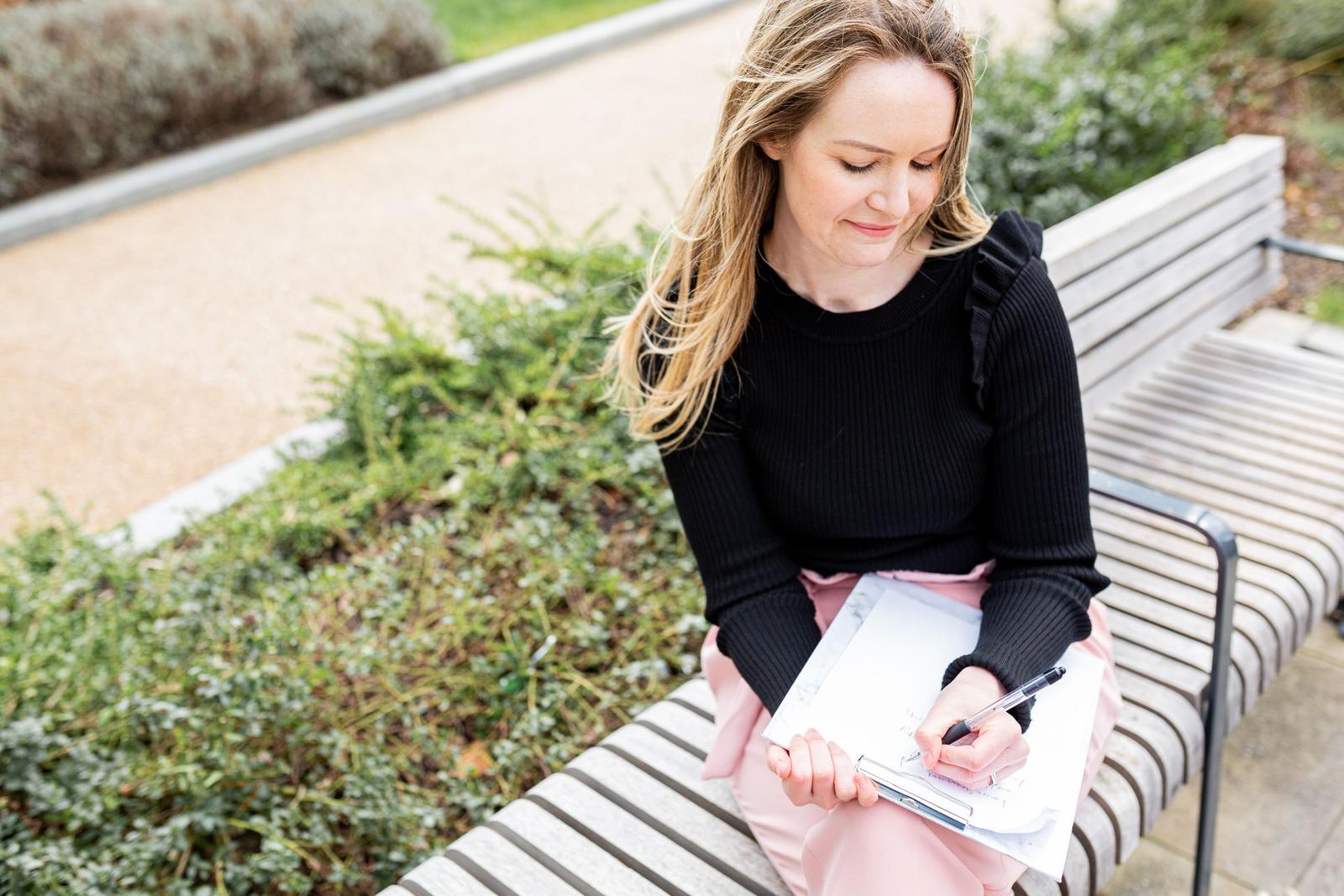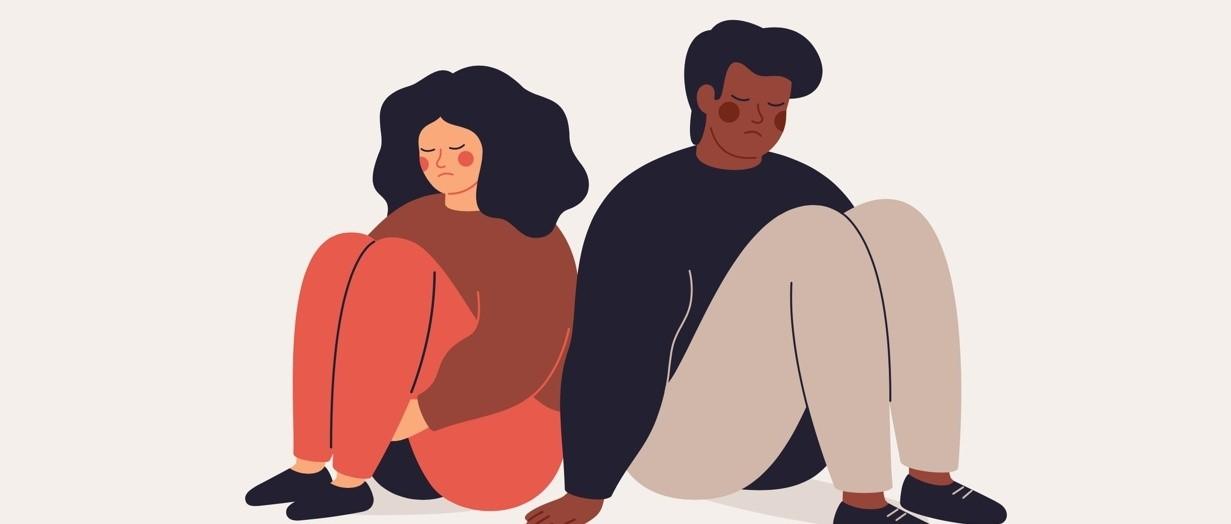
Preparing for the loss of a loved one: how to cope with anticipatory grief
Peer reviewed by Dr Colin Tidy, MRCGPAuthored by Victoria RawOriginally published 15 Sept 2025
Meets Patient’s editorial guidelines
- DownloadDownload
- Share
- Language
- Discussion
Although we don’t often talk about it in our daily lives, death is an inevitable part of living. For many of us, grief comes suddenly - when a loved one passes away, the shock and loss can feel overwhelming. But what happens when you know in advance that someone you love is dying?
Accredited psychotherapist Laura Greenwood explains this experience is referred to as anticipatory grief. We spoke with Laura about how facing the loss of a loved one can affect you, and what can help you cope during such a difficult time.
In this article:
Understanding anticipatory grief
Anticipatory grief is the emotional response we have when we are consciously aware that we are going to lose a loved one. Unlike the grief that follows after a death, anticipatory grief begins before the loss occurs.
Laura Greenwood, Psychotherapist, Laura Greenwood Therapy, Holmfirth, UK explains that anticipatory grief can arise for different reasons - sometimes because a terminal illness provides a rough timeline, and other times simply from an increasing awareness of ageing, mortality, and the reality that life is finite.
“We notice an increase in anticipatory grief, as we age, because we become more aware of the fact that life, at some point, ends,” she says. “Sometimes, you might anticipate grief and wish it were not there. Sometimes, you might anticipate grief because you feel you need to prepare for the eventuality of losing someone.”
Greenwood emphasises that, no matter the circumstances, nothing can fully prepare you for the grief of an actual loss. This is because it’s impossible to predict how you will feel once it happens. Your emotions and reactions may also be different from what you had expected.
Anticipatory grief vs grief after death
Anticipatory grief often involves different emotions and grieving processes compared to the grief you experience after a death.
“Grief after loss is about processing current feelings, experiences, and emotions - if we are brave enough to allow ourselves to do that,” says Greenwood. “Anticipatory grief can be more anxiety and future-focused. Grief after loss tends to be more reflective, focused on the past, and marked by deep sadness.”
She notes, however, that there are some common overlaps between the two types of grief.
These include:
Anger - directed at what life has taken or will take from us.
Denial - struggling to accept that the loss is imminent or has occurred.
Sadness - feeling the weight of the current reality, whether the loss is impending or has already happened.
Regret - wishing for more time or that things had been done differently.
Recognising and managing these emotions involves learning to sit with your inner world and fully experience the feelings that surface.
Greenwood acknowledges that this is much easier said than done.
“Many people have spent their whole lives avoiding doing this,” she describes. “But you can’t recognise these experiences, or learn to move through them, without it. Which is why seeking support from someone who can help you navigate your experience of grief - however it shows up for you - can be so beneficial.
“Once you receive support, it is more about moving through the experience, balancing processing your experience of grief, with living your life in a way that best suits you - knowing this balance will change with each day and stage of your grief. It can feel daunting, which is why having both a personal and professional support network can help guide you through this period.”
Laura Greenwood, Accredited Psychotherapist, Laura Greenwood Therapy, Holmfirth, UK

Emotional preparation
Back to contentsWhile nothing can truly equip you for the loss of a loved one, there are steps you can take to support yourself through anticipatory grief. These steps can help you cope with the emotional challenges and gradually prepare for the inevitable loss of a loved one.
Feeling is healing
Allowing yourself to fully experience the emotions that arise in the lead-up to your loved one's death will benefit you in the long run.
Greenwood emphasises that the more you can stay present with whatever emotions emerge, as your experience shifts and changes, the better you are able to navigate the process.
“What this will mean, is that you are less likely to judge yourself for your experience of grief,” she says. “ Especially if you feel something so vastly different from what you expected.
“For example, some people initially feel relief at the loss of a loved one - rather than sadness - due to recognising that the end of their life was a blessing for the person, or for their family in some way. It is easy for people to judge themselves for this experience. But actually, no feeling is wrong, and whatever you feel, you are meant to. There is no right or wrong way to process the complex experience of grief.”
Sharing brings strength
There are many paths of support to help you cope with the anticipatory grief of losing a loved one. Greenwood recommends finding the ones that feel most meaningful to you.
She explains that some people find it helpful to process their anticipatory grief through individual or family therapy - or by joining support groups. Others prefer to keep the experience personal, sharing it only with those closest to them.
“Notice what feels good and right for you,” Greenwood advises. “What brings some level of comfort, or a sense of connection with yourself, your feelings of grief, and your loved one. Grief is incredibly personal and, therefore, coping with this must be personal too.”
Turning memories into treasures
In today’s world, with all the modern tools that help us capture every moment, we can now preserve our memories in many forms.
While Greenwood acknowledges that capturing your loved one’s final moments - whether in writing, audio, or video form - can be a meaningful and beautiful act, she emphasises that it’s important to maintain balance.
She says: “Embrace being fully present with the time you have with your loved one, without feeling the need to document everything. At the same time, capture what feels meaningful to you and works for both you and your loved one.
“Some people find writing their story, through journaling, poetry - a book even - incredibly cathartic. Some people prefer to process their feelings and experiences by expressing them aloud. Sometimes people can find it helpful to document this during the process of anticipatory grief, or this is something they come to after losing their loved one.”
Greenwood reminds us that the main takeaway is to follow what feels meaningful and right for you, rather than what you think you should be doing.
Continue reading below
Protecting your wellbeing
Back to contentsThe demands and stresses of daily life may make it difficult to embrace your emotions while also caring for others and yourself. This challenge is no different when you are facing anticipatory grief.
Make space for yourself
Even when your attention is consumed with caring for and comforting the person you are about to lose, it’s also important to look after your own wellbeing. Finding time for yourself during this period - though it may feel difficult - is essential.
“Always make sure on your non-negotiables list is something each day for yourself,” says Greenwood. “Even if it is simply sitting with a drink of choice for five minutes to breathe before moving onto the next thing. It really is vital that you place yourself and your needs at the centre of it all.”
She explains that while processing anticipatory grief can make you feel like so much is out of your control, finding a sense of empowerment by focusing on something you can control may be helpful.
“It is one thing you have more control over than you realise,” she adds.
Protect your energy
Burning yourself out helps no one - this includes yourself. That’s why it’s essential to acknowledge you are only human, with limited energy and capacity.
Greenwood warns that if you don’t take care of yourself, it’s impossible to do everything without burning out.
“Recognise that it’s ok to say no to anything that is unimportant,” she advises. “It’s fine to cancel plans you previously agreed to if, on the day, you realise you have no energy or capacity for them.
“Focus on what absolutely must be done, and see anything beyond that as a bonus. There are no prizes for burning yourself out trying to finish a never-ending to-do list.”
Sit with your grief
Grief is one of the most difficult emotions to go through. This is why some people may try to push it aside, especially when life doesn’t slow down enough to fully face it.
Greenwood suggests you take each day as it comes, pausing regularly to check in with yourself and acknowledge your needs and feelings.
“Make sure you and your feelings are not getting lost amongst the busyness of caring and life,” she says. “I know it’s easier said than done, as there is likely a part of you wanting to bury your head in the sand by caring for others and disappearing into the busyness as a way of avoiding your feelings.
“This is totally understandable because sitting with the idea of losing someone you care for is overwhelming. It is also a very important step to support you to move through your grief, and without it, grief, anticipatory grief, becomes stuck.”
Greenwood adds that grief is an incredibly personal experience, and there is no right or wrong way to go through it. For this reason, she emphasises that no one should push you to feel your emotions before you are ready. At the same time, it’s important to find time for both your feelings and yourself, and to remember that help and support are available to guide you through the process if you need it.
Embrace feelings as they return
Grief is not a linear process. You may feel that you’ve worked through it, only for emotions to resurface later - even after you thought you had moved beyond certain stages.
Greenwood explains that these emotions may include intense feelings of sadness, anger, or any other natural human responses that can arise when we least expect them. When this happens, she advises allowing yourself to fully experience them.
“Doing so allows you to work through grief at a pace and in a way that feels right for you,” she says. “Remember, your feelings and needs will shift, as will the balance of loss with the gratitude for your loved one’s life and what they brought you.”
Final wishes
Back to contentsAfter your loved one is gone, managing post-loss practicalities while navigating your grief has no one-size-fits-all approach. For some, attending to these tasks can feel like a way of holding on to their loved one’s memory. Others may find different ways to honour those they have lost.
Greenwood recommends that whatever you choose to do, if it helps you experience your emotions at your own pace, know that it is enough.
“Grief changes you. How could it not?” she asks. “It can feel as though there is life before the loss and life after it. In the period between the loss and finding your new sense of self with grief now a part of it, you may feel very lost.
“Know this is completely normal, and know you absolutely can get through it, with a renewed sense of who you are now. We, as people, evolve throughout our lives, with our sense of self constantly shifting. Huge life events such as grief are pivotal moments where our identity has no option but to shift.”
Navigating life after loss
Greenwood recommends taking small, deliberate steps to reconnect with yourself and attend to your needs in each moment. Over time, your life will begin to feel clearer again.
“Even though the person you love is no longer physically present anymore, you will learn to build a new relationship with them in whatever way helps you feel connected to them in the here and now.
“Remember, your connection hasn’t ended. They will always be a significant part of your life - your relationship has simply changed. It’s now time to build a new kind of relationship with your loved one that brings you comfort.”
Patient picks for Grief

Mental health
Grief and young people: how to cope with loss
If somebody you know has died, it's natural to feel all kinds of feelings. Here are some thoughts on what young people can expect from the grieving process, and some tips for their parents and caregivers on how to support them.
by Abi Millar

Mental health
How to cope with the physical symptoms of grief
Grief isn't just about facing the hardest of emotions, it can also manifest in physical symptoms. People going through a bereavement don't necessarily expect this. So how do you know what's normal?
by Dr Sarah Jarvis MBE, FRCGP
Article history
The information on this page is peer reviewed by qualified clinicians.
Next review due: 15 Sept 2025
15 Sept 2025 | Originally published
Authored by:
Victoria RawPeer reviewed by
Dr Colin Tidy, MRCGP

Ask, share, connect.
Browse discussions, ask questions, and share experiences across hundreds of health topics.

Feeling unwell?
Assess your symptoms online for free
Sign up to the Patient newsletter
Your weekly dose of clear, trustworthy health advice - written to help you feel informed, confident and in control.
By subscribing you accept our Privacy Policy. You can unsubscribe at any time. We never sell your data.